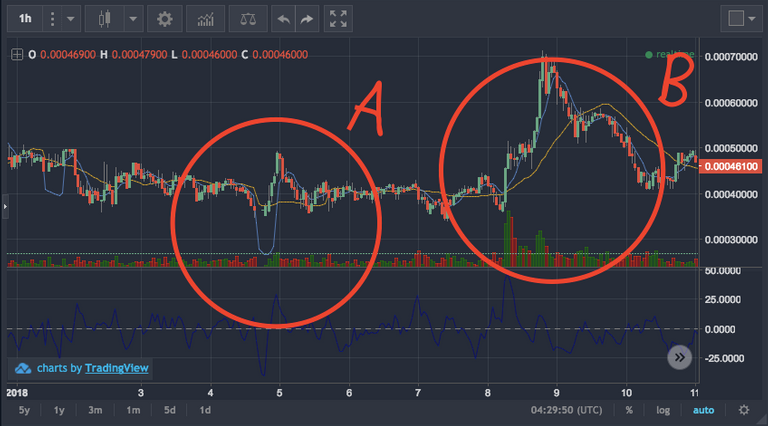When I went in as a Freshman at Ohio State a few years ago, I was an arrogant, pumped up kid from a prep school in southern Virginia where every teacher I've ever had told me I'd do great in college. I had gotten a 4.5 GPA in high school barely putting in any effort. I'd stay up until 3 AM on exam days playing video games, occasionally getting drunk, showing up to class and still pass with flying colors. I thought I was the next big thing.
I stacked a ton of classes on my first semester schedule, taking General Chemistry, Biology, a few electives, and lastly Calculus to top it off. I didn't need to take Calculus for my major, but who cares? I'm the next Albert Einstein right? I could use a challenge! I was so confident in myself, I wouldn't even check my work on homeworks, quizzes, even exams before turning them in.
Long story short I failed that class.
Hard.
Apart from a much needed humbling of myself, I learned (probably the only thing that semester) a very important lesson; learning to realize that you can be wrong, and finding ways to check your work to minimize that.
At this point you're probably wondering if I bumped my head on something before writing this article. What does the word volume have to do with anything I just said?
Well, in short, volume is the investor's way to check your work. It confirms or denies signals that may present itself as truth or fabrication. It prevents smart investors from completely embarrassing themselves like me years ago.
Many investors I see nowadays see a signal, maybe a cup and handle, maybe an ascending triangle, ABCDE pattern, what have you, and immediately buy in without looking at volume, confident they'll make easy profits. After all, these signals are bullish right? They can't be wrong!
Well, those people didn't check their work, and they will inevitably experience the same humbling experience as me in Calculus.
Now I don't want to just sit here and preach without giving something to back it up, so I pulled up a quick chart of Red Pulse (RPX) over the period of about two weeks. In reality, you can probably hop onto your favorite investing site and find something similar within a few minutes.

Now I want to point out that there are two different senarios happening here: one attempted breakout (at point A) and one real breakout (at point B).
A. This is the classic case of people expecting a bounce, and buying in due to fear of missing out (FOMO). A pump ensued, and many bought in, hoping to make a quick buck off of this rally. Well, as you can see by the chart, nobody then thought to check the volume before buying in. They all took their exams in calculus and turned it in without checking their work, hoping to get an A. Well, they all got humbled when the price crashed back down within a day back to it's original support.
B. This was about a week later, and as you can see, a breakout occurred again. Now if you covered up the rest of the rally and only showed the initial breakout, you will notice that it probably looks pretty similar to the previous one. At this point, most traders who bought into the first rally wouldn't know if this was for real or not. But, for those who double check their work with volume, will notice that there is a HUGE difference in volume. This rally was triggered on massive volume. Traders who notice this and buy in were rewarded for their ability to double check their work, as the price of RPX nearly doubled during the rally before correcting once again.
Now here's the real dilemma now. How much volume is enough to signal a buy?
Well, frankly I don't know. In my opinion, it's all up to our own individual judgement: how much the average volume is, how much volume you think it would take in order to trigger a real breakout, and how confident we are in the investment itself. Beyond that, I don't think there is a cookie cutter instruction manual I can write out that will get it right every time. Just make sure you check your work so you don't fail.
Anyways, thanks for reading, and if you enjoyed this article, please leave me an upvote, and make sure to comment any thoughts you may have on this subject.
Fei
Great post man. You've been killing it lately. Volume is one of the best indicators. You've nailed it again. Keep it up.
Thanks! always great to have feedback.
thanks for posting this! i was actually trying to learn all about volume breakouts all day since I have now started day trading, charting and analysis
Yes! Volume is a great tool for any type of analysis! Keep it up.
v nice
Yaah thats good ...as a crypto trader I can say that your points might add value to the crypto warriors and hope that you will add more qualitative article into it ..lets work together and win the crypto battle...